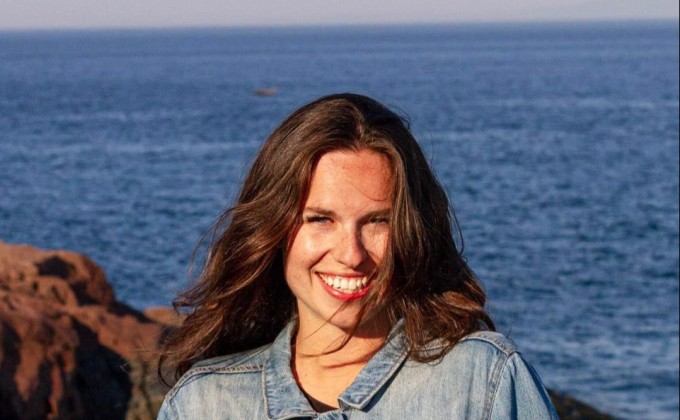
Previously an academic volunteer with CECI Bolivia, Virginie DeChamplain decided to renew her assignment to continue the work she had undertaken with our partner UNITAS. Virginie is now a graduate of Université Laval with a master’s degree in International Development and Humanitarian Action Management. The issues that are particularly close to her heart are gender equality, human rights and the environment.
Could you tell me about your background, your interests and what prompted you to get into the field of international development?
“I’ve had quite the diversified journey! I started in natural sciences at CEGEP, then went on to complete a bachelor’s degree in literature. After that, I worked in the area of culture for a bit, but it didn’t feel stimulating enough. It was only after my first master’s degree on the history of gender equality that I realized this was what I wanted to do. I then enrolled for another master’s degree in international development and humanitarian action management at the Université Laval, where I was able to learn much more on this subject.”
How did you hear about CECI?
“Officially, through the university. However, I had already known about the organization for some time when I first applied, because I had seen CECI’s website and felt compelled by the organization’s vision and mission. That is why I jumped on the opportunity as soon as I saw the internship offer. I knew this was an organization I was very interested in.”
What is your role at CECI and what specific tasks are you responsible for?
“I started out as an academic volunteer in gender equality with CECI Bolivia. As part of this assignment, we started to develop a gender mainstreaming toolbox for organizations, bringing together various very concrete analysis tools that are accessible to all. Because this was a big project that we could not finish in the 3 months of my first academic assignment, I decided to continue this work and renew the assignment, now as a professional volunteer.”
Why did you choose Bolivia as the country of your assignment?
“First of all, because having to carry out all of my activities in Spanish represented a big challenge. It was very hard at the beginning, but the effort was worth it. I simply can’t believe how much my Spanish has improved in 3 months. I am very proud and happy about it! And in second place, because Latin America is a region that I was always attracted to because of its cultures and peoples. I wanted to learn more about this part of the world.”
Why did you decide to renew your assignment with CECI Bolivia?
“Mainly in order to complete the work I had started, but also because I felt a sense of belonging with the team. I think I would have felt bad leaving everything right in the middle, knowing I had the time and the possibility to keep going with this assignment, which helped me learn so much. Plus, I had just gotten around to the most fun part the assignment!”
What do you think are three words that best describe the Bolivia country team?
“Everyone collaborates with everyone, sharing each other’s ideas. Us interns were made to feel comfortable from day 1 thanks to the warmth of the people. I also consider myself very well integrated into the team.”
What do you like best about your experience?
“The fact that it is very hands-on. In short, having the chance to create something that can be used and communicated, and that can hopefully have a great, lasting influence and a real impact for the partners.”
What words of advice would you offer to the future volunteers who will collaborate with Bolivia?
“To take full advantage of the assignment and try to integrate as much as possible, because the team is very welcoming and not intimidating at all! Also, don’t hesitate to come up with ideas and take initiatives!”
Where do you see yourself in a year?
“If the global sanitary context allows, the idea would be to complete an assignment abroad. I am enjoying a good relationship with CECI and would really like to stay with the organization.”
Do you think that your experience with CECI Bolivia has given you new tools to move forward with your projects?
“Yes, for sure! My academic assignment represented my first professional experience in international development, allowing me to really experience how things work in a large organization. I was also able to build a network of contacts, better understand the workings of the profession and acquire some key skills.”
What would you say to people who are hesitant to register for a remote voluntary cooperation assignment with CECI?
“Although the situation is not ideal and we are all tired of the distancing, I want to say that we still can achieve quite a lot and gain a sense of accomplishment at the end of every day. Even from your living room, you can still generate bonds with people and learn new things.”
Do you have an important message to convey to the readers of this interview?
“I would like to reiterate the importance of gender equality. Even in our everyday life, I believe it is important to stay alert, to keep educating ourselves and to pay attention to our actions and our words. I am also convinced that the empowerment of women is the key to the success of international development.”
And now for a little trivia: What is the difference between alpacas and llamas?
“Good question! It might have to do with their wool … or habitat?”